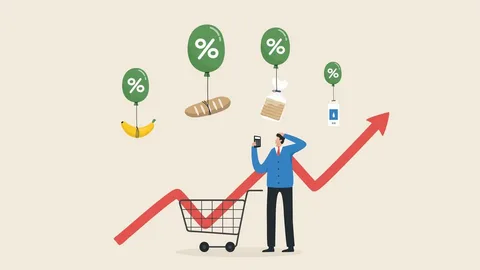Kenya’s Producer Price inflation rate has dropped to (5.7%) in March 2025, a decline from 7.48% recorded in March 2024 making it the biggest drop in recent years. During this period, the highest producer inflation rate was recorded in June 2022 at 16.5%. The drop is attributed to reduced costs in sectors such as mining and manufacturing. Normally, these savings at production level would lead to lower consumer prices however in reality the transfer of reduced costs to the consumer from the producer is faced with various economic hurdles that keep retail prices extremely high.
Theoretically, lower producer prices mean reduced production costs for manufacturers but this does not guarantee immediate relief for consumers. Various market-based factors delay the reduced cost transfer down the value chain. Such factors include rigid pricing strategies where producers are reluctant to pass down the reduced costs to the consumers especially if they are recovering from high inflation effects. Second, increased taxes and levies such as Excise duties and Value Added Tax continue to increase the retail prices which dampens the benefits of cheaper production inputs. Also, in concentrated markets where competition is limited, firms may opt to maintain wider margins instead of reducing prices. Despite Kenya’s logistics sector being inefficient, it still suffers from high distribution costs. These transferred costs can eat into any savings realized.
External forces such as currency fluctuations and geopolitical instability are influential in the pricing of consumer goods. For instance, if the Kenyan shilling depreciates, the cost of imported goods may rise which may affect domestic input savings. Also, high borrowing costs for organizations means increased operational costs which in turn limits their ability to reduce their retail prices.
The harsh reality is while consumers expect cheaper products due to reduction in production costs, their assumptions may not align with the current reality. The benefits of a decreasing Producer Price index are likely to be enjoyed on a medium to long term basis, if the businesses gain enough confidence and support to expand production, improve efficiency by being innovative.
The current drop in Kenya’s production costs is a positive sign for both manufacturers and consumers and could prove beneficial in easing inflationary pressures over time. Despite this, consumers should learn how to manage their expectations in the reduction of retail prices. If it is not accompanied by necessary reforms such as reduced taxation, improved logistical support and encouraging market competition among firms in the same industry, the effects of reduced production costs will not trickle down to the consumers.















